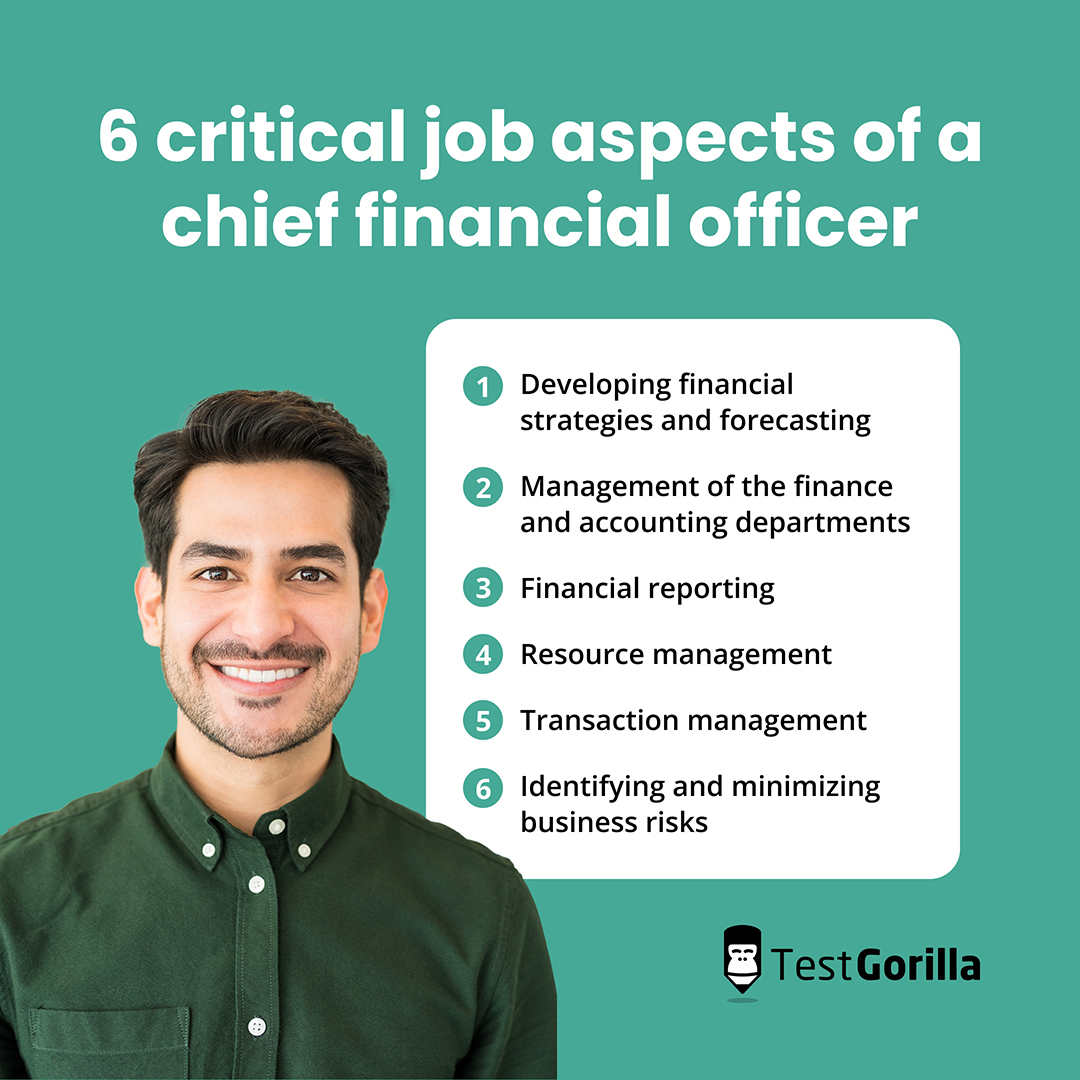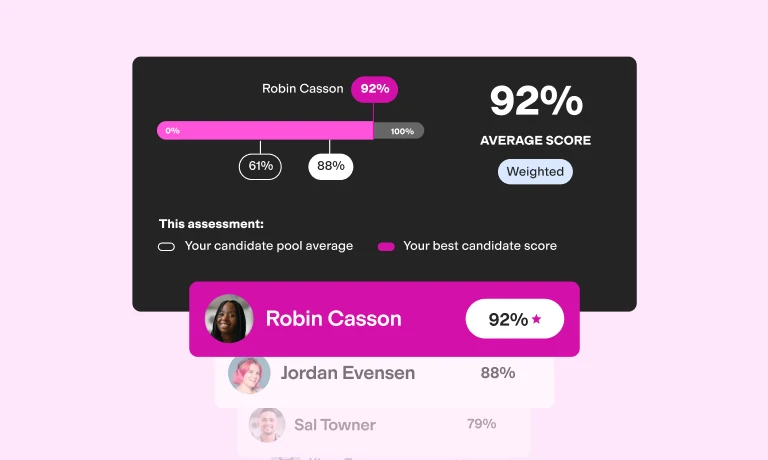Managing the finances of a growing company can be quite a challenge: Every stage of scaling comes with the need of strict and consistent control of your company’s finances.
At some point in your organization’s evolution, however, managing your books and protecting your bottom line while still keeping an eye out for growth opportunities will inevitably become too complex.
So, hiring someone with the necessary skills and experience to focus solely on handling your company’s finances – i.e. a chief financial officer (CFO) – will be critical for the success of your business.
It’s important to pinpoint the right time to hire a CFO. If you hire them too early, you might lose more money than you gain. If you hire them too late, you might miss outstanding business opportunities and the chance to take your company to the next level.
And then there are more questions to ask yourself:
Should you always hire an in-house CFO or can you hire a contractor for this role?
How do you find the right candidate for your company?
What skills should you be looking for in a CFO?
How do you accurately assess these skills?
Where can you source qualified candidates for the role?
In this step-by-step guide on how to hire a CFO, we’re going to help you find the answers to all these questions – and more.
What is a CFO?
According to a Deloitte report, the role of a CFO used to encompass two job roles – that of a steward who minimizes financial risks and manages the books of your company to preserve your assets, and that of an operator who runs financial operations.
It used to be more of a back-end job, with the CFO being mostly occupied with financial control and statements.
However, the CFO job role has drastically evolved in the past few years.
Rapid technological changes, as well as the rise of global economic uncertainty, transformed the CFO role into a more outward-facing job with a focus on opportunities for business growth.
Today, you can think of CFOs as more of strategists who help you take your company in the right direction and catalysts who develop a financial approach that helps other segments throughout your organization to perform better.
In short, the CFO is the person responsible for your company’s financial operations and strategy. They strongly impact the decisions about your organization’s investments, asset management, and long-term goals.
Your CFO will analyze your ledgers and cash flow, calculate the return on your investments, and handle cost-benefit decision making. There are six critical aspects of their job:
Developing financial strategies and forecasting
Management of the finance and accounting departments
Financial reporting
Resource management
Transaction management
Identifying and minimizing business risks
To do all this, CFOs need a mix of several important hard and soft skills.
Chief financial officer hard skills
Here are some of the hard skills that you should be looking for when you’re hiring your next (or first) chief financial officer:
Financial knowledge
CFOs work with numbers on a daily basis. Even though the focus of the job role leans more toward building strategies, financial literacy is still critical. Understanding a business’ finances and making use of this knowledge to make decisions is key for any successful CFO.
This includes the following sub skills:
Budgeting
Handling debt and credit
Investment
Financial planning
Excellent understanding of financial concepts such as compound interest
Software skills
Financial jobs require solid knowledge of the software tools that are used for handling finances. Technical skills are necessary for any CFO, as well as practical understanding of the software commonly used to manage a company’s finances such as:
QuickBooks
Xero
Microsoft Excel
Strong business judgment
Business judgment refers to making informed decisions after evaluating carefully and in detail the available information and considering the best interests of your company. Having a good nose for value is an essential skill for any C-level executive.
Having clear business judgment means you can:
Make informed decisions
Analyze information objectively
Act with the company’s best interest at heart
Strategic mindset
A successful CFO has a strong analytical mind, oriented toward building long-term financial strategies and solutions for every department that they work with and for the company as a whole. Cultivating a strategic mindset is crucial for finance change leaders.
This means asking the right questions to uncover opportunities and challenges, analyzing different viewpoints, and mapping out long-term actionable plans for the future.
Risk assessment
The CFO is the first line of defense against financial risks for your company. One of their main duties is to identify potential risks and build a strategy that mitigates them.
CFOs oversee multiple areas for different kinds of risk. They:
Identify and evaluate potential internal and external risks
Create risk assessments
Prioritize the risks and build strategies to minimize them
The best insights on HR and recruitment, delivered to your inbox.
Biweekly updates. No spam. Unsubscribe any time.
CFO soft skills
Soft skills are just as important as hard skills for a CFO. Some of the soft skills we recommend looking for in a chief financial officer are:
Critical thinking
Critical thinking is the ability to discern and interpret things effectively. Critical thinkers must be aware of their own biases and assumptions and apply consistent standards when they’re evaluating information.
Someone with well-developed critical thinking can:
Analyze complex situations
Identify underlying assumptions
Process information effectively
Reach data-based conclusions
Attention to detail
Errors made by your chief financial officer can impact the work of many departments in your company – and even put your entire business at risk. That’s why it’s crucial to hire someone who has a strong eye for detail and doesn’t dismiss any information without evaluating it first.
Paying attention to detail:
Increases efficiency
Reduces errors
Builds trust with coworkers and clients
Saves time and resources
Problem solving
The CFO plays a critical role in high-level problem solving. They are frequently called upon to solve organizational issues - and they’re expected to do it fast. Find a CFO who prioritizes problem solving and finds quick and effective solutions.
Leadership
The CFO always has to have the bigger picture in mind. Taking decisions that strongly impact your organization, managing relationships with all stakeholders, and leading teams toward achieving your company’s long-term objectives are critical responsibilities for their job. All of this requires strong leadership skills.
A good leader:
Brings the team together
Motivates everyone to do their best work and work toward a mutual goal
Understands their own blind spots
Finds the right balance between individual, group, and company goals
Negotiation
Negotiation skills are important for most professionals, but they are critical for people who work in finance. Being a good negotiator means you can represent your department effectively and be confident and goal-oriented when you’re setting the terms for deals or changes that impact the company.
There are five main negotiation styles:
Competing
Collaborating
Compromising
Accommodating
Avoiding
CFOs need to know how to use each one to support their goals.
How to test CFO skills
There are two problems with evaluating someone’s skills only by looking at their resume:
People might lie or embellish their abilities or past experiences
The resume can’t give you any insight into their present skills
To deal with these problems and hire effectively, you can learn how to spot lies in a resume. While this may increase your ability to identify false information, it does nothing for the second issue.
To quickly and objectively evaluate your candidates’ current skills, use pre-employment skills testing.
Pre-employment assessments are scientifically-proven, accurate tools for evaluating a large variety of skills, both hard and soft ones. Shorten your time to hire and find the most suitable candidate for your company by implementing pre-employment skills testing in your hiring process.
Recommended tests for CFO
Here is a list of pre-employment skills tests that you can use to evaluate your candidates’ relevant skills for the CFO job role. Combine up to five tests to create your own skills assessment:
Financial management: This test evaluates a candidate’s ability to manage and control the overall finances of a business.
Wealth management: This assessment will filter the candidates who can successfully identify financial goals and risks.
Financial due diligence: Use this test to assess your candidates’ abilities to analyze financial health and identify associated risks.
Business judgment: This skills test will help you find a CFO with excellent business judgment and the ability to spot opportunities.
Financial accounting (US GAAP) and Financial accounting (IFRS): CFOs must have strong knowledge of financial accounting and its terminology to succeed.
QuickBooks: QuickBooks is one of the most popular accounting software tools out there, so if your company uses it, it’s a good idea to find a CFO who knows it inside-out.
Xero: Xero is another widely used accounting tool. This test enables you to identify candidates who are proficient in it.
Financial modeling in Excel: Assess applicants’ ability to create and analyze financial models in Excel.
Attention to detail (textual): This test will help you identify individuals who can carefully and thoroughly handle complex processes without missing important cues.
Critical thinking: Assess your candidates’ skills to evaluate information and make sound judgments without jumping to conclusions prematurely.
Negotiation: Find a CFO who is a strong negotiator, motivated to advance your business interests.
Problem solving: This test is ideal for job roles that manage constantly shifting variables with tight deadlines.
Leadership and people management: Any C-suite role requires outstanding leadership skills, which you can assess with this test.
CFO interview questions
After evaluating all applicants’ skills with the help of skills tests, you can identify the most promising talent for an interview for an in-depth discussion of their experience, goals, and vision for your company.
Here are some interview questions you can ask candidates for the CFO role:
How do you prioritize budget requests from different departments?
How do you handle financial downturns?
What experience do you have with setting up financial controls and systems?
What methods do you use to set, review, and achieve financial targets?
How do you ensure transparency in your work?
How do you handle situations where financial results do not meet goals?
What role do you see the finance department playing in company innovation?
How would you handle a situation where an important client is late on a large payment?
How do you ensure that the organization remains compliant with financial regulations?
Tell me about a time when you identified a significant financial risk for the company. How did you do that and what steps did you take?
Describe a time when you were at odds with the CEO on an important financial matter. How did you handle it?
How do you ensure the executive team and other non-financial stakeholders understand complex financial data?
How do you approach setting compensation structures and incentive plans?
How do you envision contributing to our company's growth?
What's your approach to succession planning for financial roles?
If you need more ideas for questions you can ask, head on to our selection of interview questions for executive leaders and financial accounting interview questions.
Where to find a CFO
The next step in the hiring process is deciding whether you need a freelance CFO or an in-house one.
Although C-level roles are usually filled by full-time employees, some smaller companies might decide to hire a freelance finance manager who has the de facto responsibilities of a CFO. An in-house CFO is a must for growing and large-scale business.
Freelance CFO sources
If you decide to hire a finance leader on a contract basis (although you probably won’t give them the title of a CFO), here’s where to look:
Linkedin: This is one of the most well-known platforms for sourcing experts in any field, currently hosting over 12 million active professionals.
PARO: PARO is an innovative AI platform for freelancers who specialize in finance roles. It matches you with the right candidates with the help of an AI service.
Toptal: Toptal is a freelance network that connects you to highly qualified financial experts, software engineers, project and product managers, and designers.
In-house CFO sources
If you want to hire a full-time employee, here are some places you can look for candidates:
eFinancialCareers: This platform connects employers with financial experts from 19 markets.
FinancialPositions: This is a platform targeting only financial job opportunities.
Indeed: Indeed has a large market share among job boards and is the most visited job site in the US.
How much does a CFO cost?
According to Salary.com, the average annual salary of a CFO in the US is $430,616 in 2023. It typically varies between $326,231 and $552,440.
Your CFO’s salary will depend on factors such as:
The person’s qualifications and skills
Their previous experience and track record
Your company’s size, location, and industry
CFO job description template
Position: Chief financial officer (CFO) for [type of company or industry]
Location: [City, state]
At [your company name], we are passionate about [briefly describe your mission]. As a rapidly growing startup, we are seeking an experienced Chief Financial Officer (CFO) to join our leadership team and help us set up and execute our financial strategy.
You'll play a crucial role in formulating financial strategies and ensuring the financial sustainability of our business. This is an exciting opportunity to shape the financial future of a company that's on track for significant growth.
Responsibilities
In this role, you'll do the following:
Create and implement financial strategies that support our growth
Work closely with the CEO and leadership team to define goals
Oversee all financial operations, including budgeting, financial forecasting, and negotiations
Identify and manage financial risks
Ensure compliance with financial regulations and standards
Lead efforts to raise capital, including connecting with potential investors and exploring different funding options
Prepare reports and forecasts on our financial performance
Build and lead our finance team
Identify opportunities to improve existing financial processes
Manage relationships with investors, partners, and the leadership team
Qualifications and skills
For this role, you'll need the following:
Proven experience as a CFO or financial management role, preferably in a startup or a high-growth environment
In-depth knowledge of corporate finance, risk management practices, and financial strategy
Strong analytical, strategic thinking, and leadership skills
Proficiency in financial software and tools
Excellent communication and negotiation skills
BSc/BA in Accounting, Finance, or another relevant field; MSc/MBA or relevant certification (f.e. CPA) is a plus
Compensation and benefits
We offer the following:
A competitive salary within a range of [salary range]
Equity options and performance bonuses
A dynamic and innovative work environment
The opportunity to shape the financial future of one of the most innovative startups in the [type of industry or niche]
Excellent health and wellness benefits
How to apply
[Explain your application procedure]
Make hiring a CFO easier with skills tests
Making a bad hire is costly and has a strong negative impact on your business. This is especially true when you’re hiring for a critical job role such as this of a chief financial officer.
There is no way to have a 100% guarantee that you will hire the best candidate. However, pre-employment skills tests will optimize your hiring process and minimize the risks of hiring the wrong person for your company by enabling you to:
Evaluate applicants’ skills objectively
Give everyone a fair chance to succeed
Identify the most promising talent
Reduce unconscious bias
Try our free plan today to see for yourself how easy it can be to evaluate candidates’ skills and hire the right people for every role – even that of a CFO.
You've scrolled this far
Why not try TestGorilla for free, and see what happens when you put skills first.



















